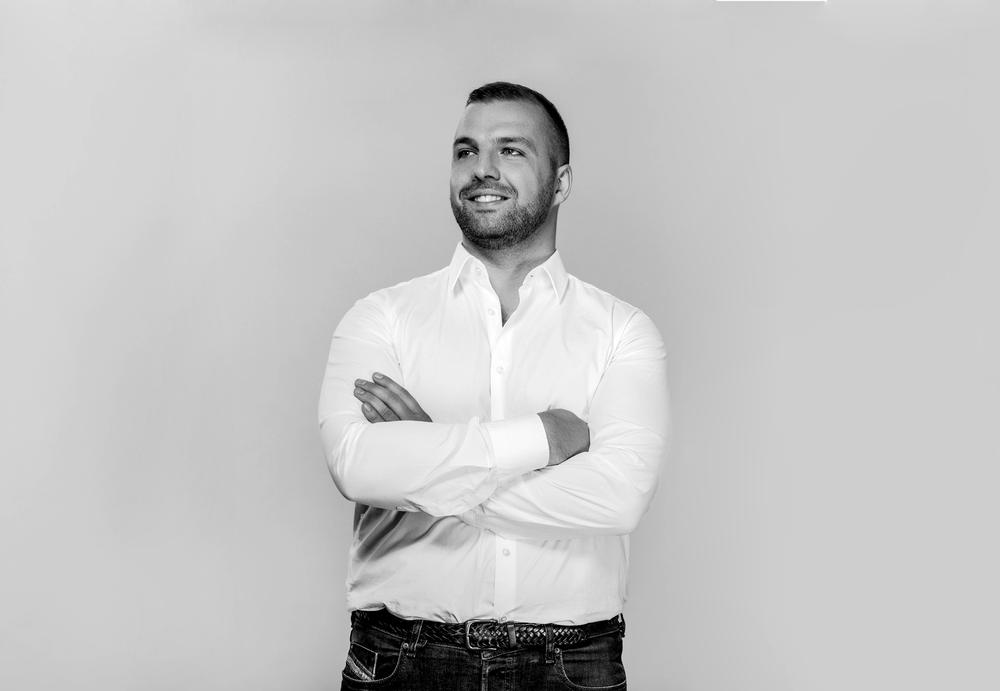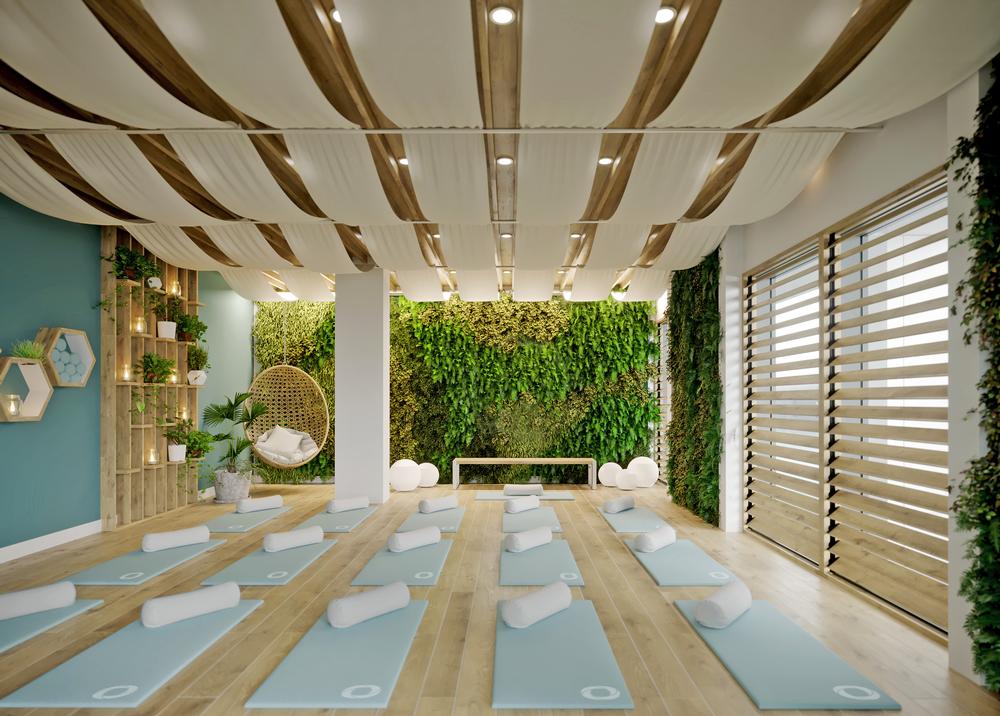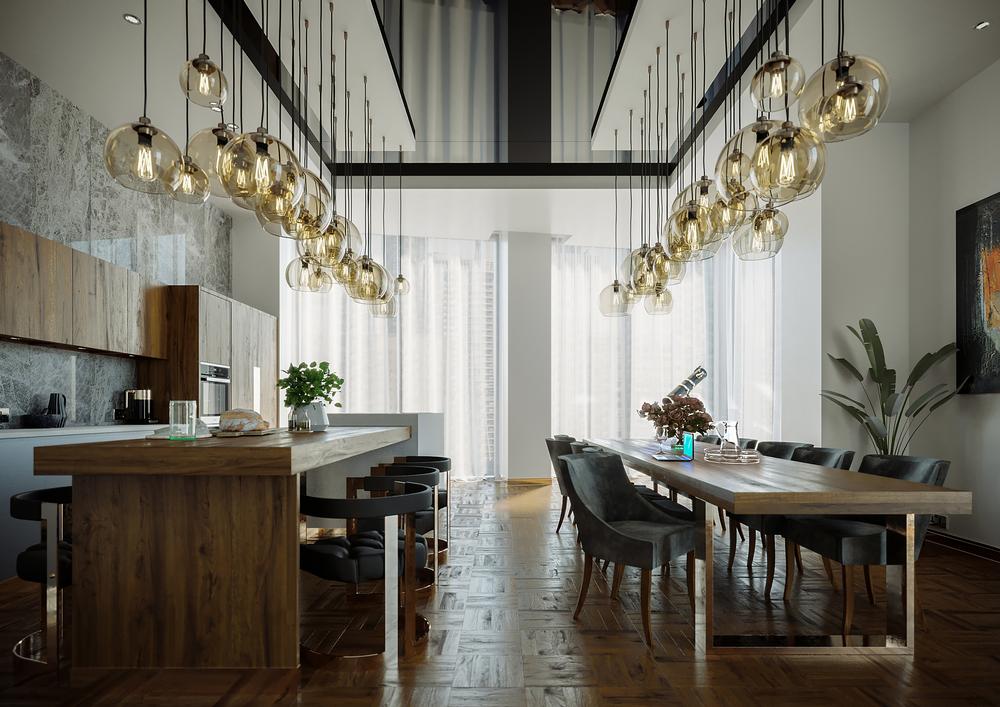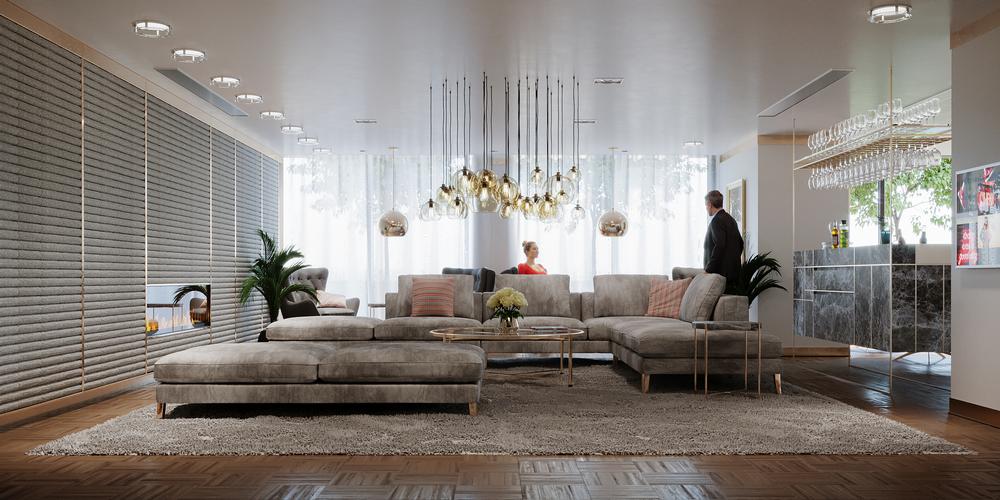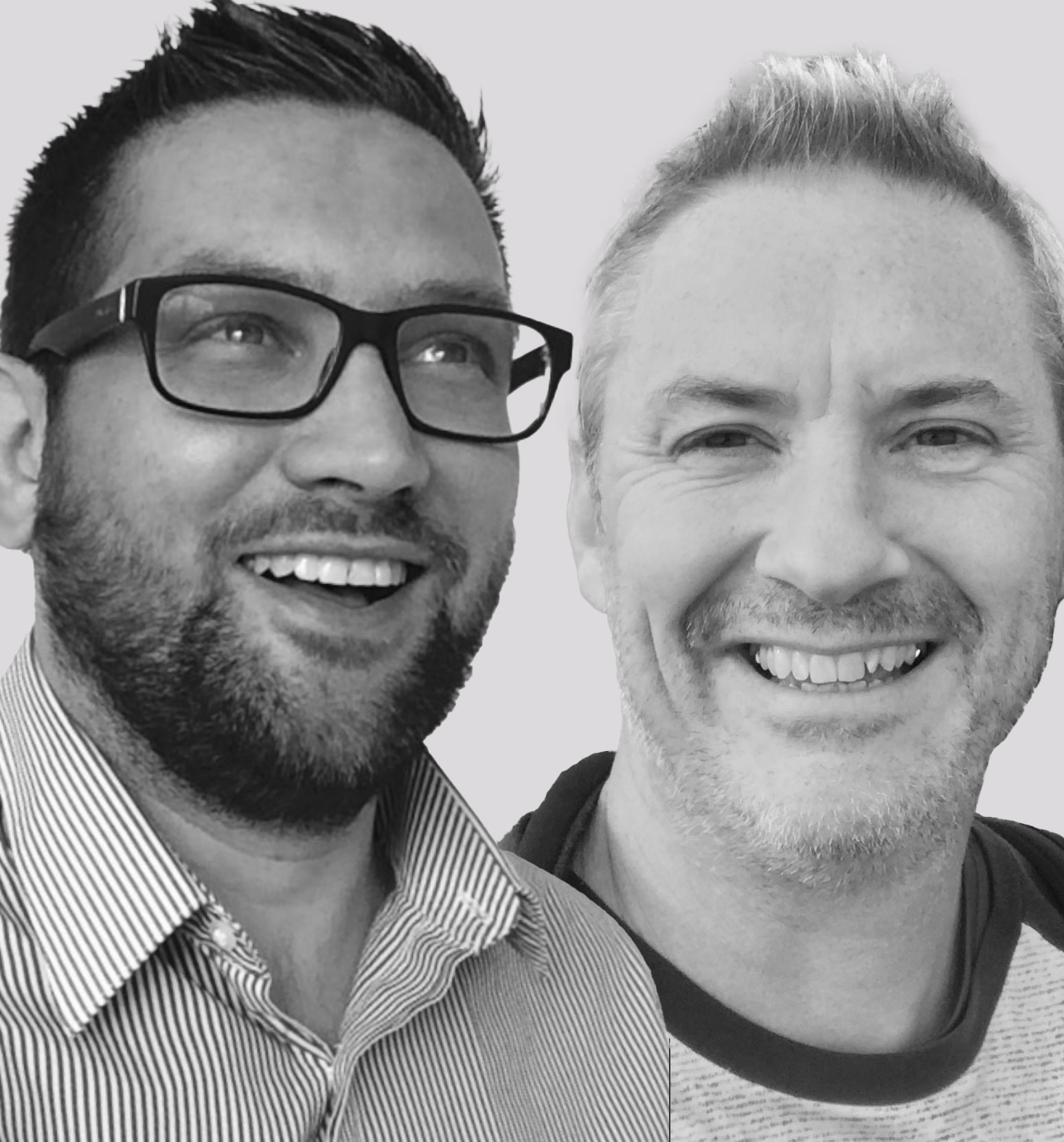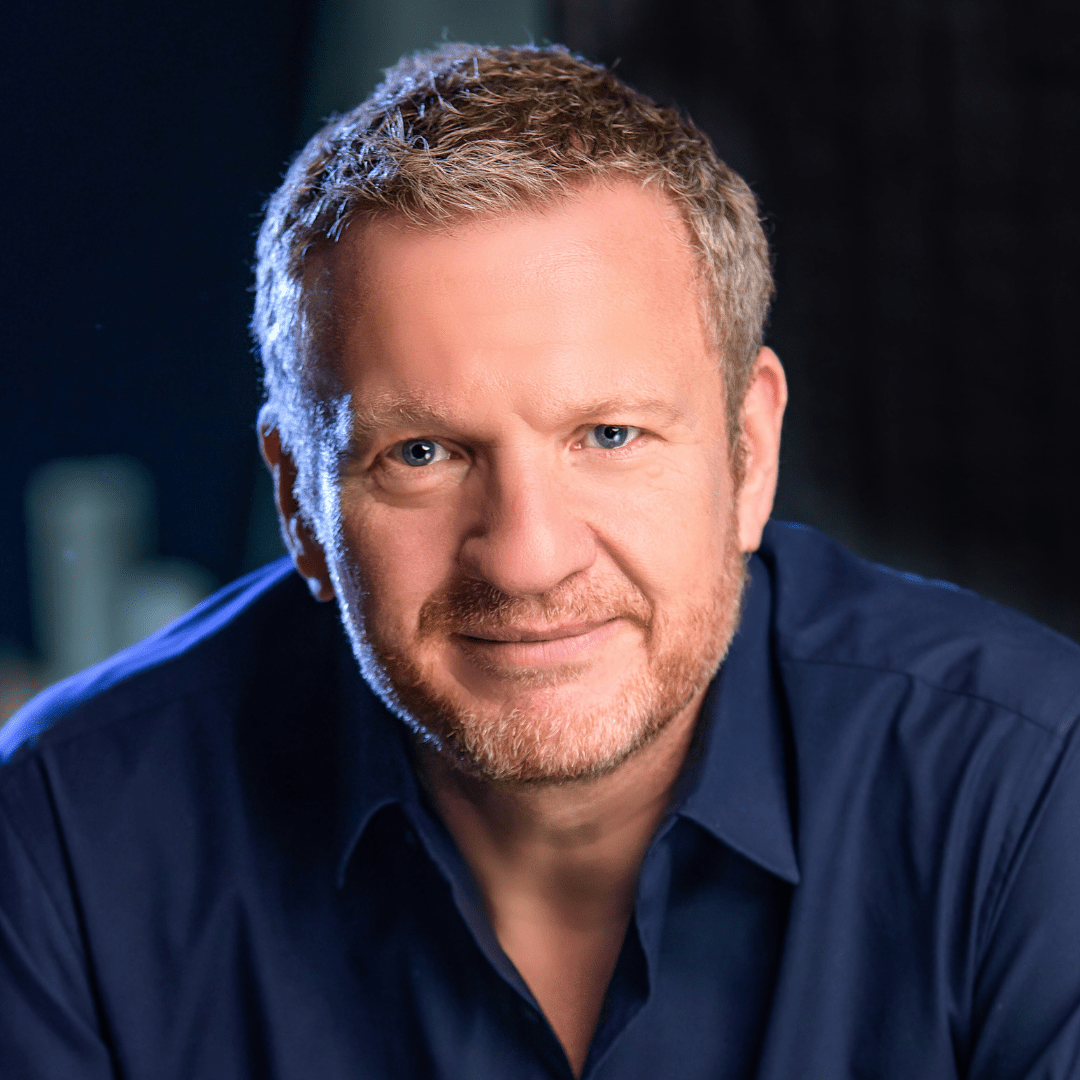What’s your background and how did it lead to the creation of Hero?
My whole life, I’ve had a strong interest in people and health. I studied anatomy and kinesiology at college, as well as leisure, and then studied for a degree in psychology. My whole education was centred around an understanding of people – the physical, mental and social reasons why we are who we are, and why we do what we do.
I had every intention of becoming a clinical psychologist, but was advised to get some life experience first. Given my huge passion for helping people with their health, I went to work at Fitness First. I worked my way up the business in Malaysia and Australia, then joined Virgin Active where I was promoted to operations director and then to sales director.
It was a great 10 years, but I couldn’t help feeling that the fitness industry had an opportunity to close the loop, by finding new solutions to help people even more. So this is where my other big passion came in: technology.
I’d always wanted to run my own business and passionately believed I just needed to find the right idea: I wanted to see if I could create something really meaningful.
When the idea for Hero came to me – a wellbeing technology product designed to genuinely help people – I decided to resign from my job and get started on this.
I was just about to get going when WeWork approached me and offered me the MD role. I did that for a year, but then decided I really did want to follow my passion.
This was 2017, and was when I decided to formally launch Hero.
What was the opportunity you identified?
Health is such a personal thing. For a certain percentage of the market, the health and fitness industry absolutely ticks the boxes.
However, there are also people who fall into other categories: those who turn up at the gym and feel intimidated, so never go back; those who go to the gym, but who do the same routine; those who do well at the gym but have no holistic overview of their wellbeing the other 23 hours of the day – are they getting the right amount of sleep, the right level of social interaction, does their nutrition support the effort they’re making in their training?
I just felt there was an opportunity to provide a more comprehensive offering to people by helping them at a lifestyle level, as opposed to focusing only on their training.
This is what Hero aims to deliver, but we come at it from a very specific angle: although our product is used by individuals, our relationships are with corporate organisations and operators – of student accommodation, residential living and so on – who then promote our services to their residents, employees and clients.
So, what exactly is Hero?
The first aspect of Hero is its technology platform. We’ve created a wellbeing platform we’ve called Navigator, which is a preventative solution and a lifestyle product all rolled into one.
Personalisation is central to the Hero concept: everyone’s on a different journey in terms of their physical, mental and social health, so it’s important that you either have intuitive technology or a variety of services to help people across all these aspects.
The second aspect of what we do is community and social wellbeing. Once you understand yourself and what you’re trying to do in terms of your health goals, we believe the best way to achieve them is by forging a real relationship with people – those at a similar level as you, or perhaps with similar interests – to help you adopt new habits and behaviours.
With that in mind, you can create challenges through our platform – heart rate challenges, sleep challenges, calorie burn challenges, whatever you like – but equally importantly you can create groups.
This is a good example of blending the in-person experience with intuitive technology: our technology is the facilitator, allowing you to create things like dog walking groups, book clubs, cooking groups off the back of an on-site cooking class we might deliver. It’s about bringing like-minded people together.
Next our focus is on holistic health – physical, mental and social – helping people adopt a healthy lifestyle by making meaningful changes they can sustain. We don’t go in for shock tactics.
Then finally, we focus on achievement. Our aim is to support everyone better than they’ve ever been supported before, whether you’re an experienced exerciser or someone who’s just setting out and needs to form some social bonds. The technology we’ve created is really intuitive – it allows for the recognition of every little win as it happens, whatever shape that win might take.
What’s the specific functionality within Hero’s Navigator platform?
Navigator encompasses a comprehensive set of products.
From an activity perspective, you can link all your wearables and apps – from iOS to Android, Fitbit to Strava – to see all your data in one place, with a dashboard to help you manage your health goals.
It covers mindfulness too, with an extensive wellbeing library and programmes to help people with anything from meditation to concentrated breathing to managing anxiety through positive psychology. The platform also allows you to set goals – around sleep, breathing, meditation and so on – which it then monitors, sending you reminders throughout the day. Essentially it’s about education and tracking.
Our nutritional offering is very outcomes-based. There’s barcode scanning, so you can track your macros and your calorie intake. There’s our wellbeing library too, plus actionable tips, recipes and so on. We also recently acquired Colour-Fit – a nutrition specialist that works with the likes of Manchester United, Arsenal and the Welsh Rugby Union team – and its expertise has been built into the technology too, with more developments to come.
We also have a reporting suite where people can access meaningful data to monitor their progress. We process it in such a way that the data becomes actionable and useful for the individual.
Meanwhile, for companies, we can produce anonymised, aggregated data to show trends. We can see what articles people are reading, for example, which in turn allows us to steer the overall strategy, improving that company’s wellbeing initiatives in real time by making them more relevant to users’ needs. Nothing we do is static – we’re constantly modifying in response to feedback.
So that’s the digital aspect of what we do, but we’ve also spent a lot of time procuring key partners to complement the technology with on-site services.
Tell us more about these complementary services
We have a delivery arm which complements our digital offering by going on-site at the corporations and residential complexes we work with.
Our education programme, Mind Set, covers everything from gut health and weight management to positive psychology and behaviour change, so we can go on-site to run workshops and seminars on any number of health- and wellness-related topics.
We also deliver a wide range of services including on-site GPs, physios, nutritionists, group training classes, cookery workshops and so on.
Ultimately, we tailor the package very specifically to each company, devising the perfect blend of digital and in-person support, based on the findings of the in-depth wellbeing survey we conduct at the beginning of every project, as well as ongoing feedback.
Our offering is entirely sculpted around the needs of end users. If the organisation or operator feels a service is worth adding to the list of available services based on user demand, we can do it.
This flexibility has been enhanced still further by our recent acquisition of UKWellbeingCoach, which provides a range of health and wellbeing services to UK businesses, including health checks and screenings, seminars, training programmes, bootcamps, one-to-one coaching, physiotherapy and massage.
Can Navigator work as a standalone solution?
Individuals don’t have to use our on-site services: there’s plenty on offer within Navigator, including optional extras, should you want them. You can book a virtual PT session, for example, or pay for a single sign-in to Les Mills On Demand to do a virtual group fitness class.
We can even arrange for recipes from our platform to be cooked and delivered to your apartment block if you don’t have the time or inclination to cook for yourself.
We’ve made it so that, irrespective of any in-person services, you have the tools and tracking you need within Navigator to have a positive impact on your holistic wellbeing.
The whole point of Hero is that there’s enough variety to allow for personal choice. All of the services available at any one location are based around the needs of the users there, but even within this, each individual will be able to choose what they feel will best enhance their physical, mental and social wellbeing.
Our expectation is therefore that we can engage with everyone on some level.
You’re also launching your own fitness facilities. Tell us more.
We’re bringing our own consumer products to market via a new partnership with Moda Living, which we’re really excited about. We’ll be opening our own fitness studios, offering a mixture of group and personal training.
But let’s take a step back, because the whole partnership with Moda is really interesting. Moda is a residential developer of build-to-rent apartment blocks – you can only live there if you’re renting – and it wanted to do something to address the high levels of loneliness among renters. It wanted to improve their physical, social and mental wellbeing, all of which are inextricably linked.
Moda’s first development – a 466-home build in Angel Gardens, Manchester, which opens this year – features lots of great communal spaces, but it wanted to bring Hero on board to complement this. As with all our clients, we’ll be devising a package of digital and in-person services to support the residents.
But we’re also opening a 10,000sq ft Hero-branded training club on the ground floor – a first for Hero. It will be operated by us, delivering group and PT only, and will be based on the same pillars as our tech platform: personalisation, health, achievement and community.
We’ll have four different studios – Rejuvenate, Strength and Conditioning, Athletics and Cardiovascular – and the training will be very outcome-focused. But when you leave the studio, you’ll also be able to use Hero’s tech platform to track your movement, sleep, meditation, nutrition. We see the club as very much part of the broader, balanced lifestyle we support through Hero as a whole.
With this in mind, we’ll also be delivering on-site education in the club – Lunch and Learn workshops and seminars, for example, which we’ll tailor around our members’ needs and interests as they emerge.
The club will also be open to the public, not just to Moda residents, with a single class priced at around £25. Monthly membership – our Wellness Commitment package – will cost £100+.
Any plans to collaborate with Moda beyond this Manchester project?
Moda is such an innovative business and it really cares about the experience for its residents – it wants to create something genuinely differentiated from a wellbeing perspective.
I believe that we have the perfect arrangement with Moda: great city centre locations and a partner that passionately believes in the same things as us.
We’ve therefore partnered with them for the long-term, with a strong pipeline of sites already confirmed in Leeds, Birmingham, Brighton, Edinburgh and Glasgow; and London is also on the agenda.
Where else can you see the Hero model working?
We’ve actually just announced a new partnership with an innovative operator in the retirement village space – an operator called Inspired Villages. We’ll be collaborating with ukactive on an active ageing initiative there, looking at best practice ways to help people be healthier and live longer.
We also signed an agreement in November with FoodWell, to be part of its inaugural 9,000sq ft site in Manchester.
FoodWell will offer group fitness classes, a mindful restaurant and a series of workshops on healthy living options – and we’ll be operating a 30-person capacity Rejuvenate studio within this development.
In addition, we’re working on a number of deals with companies that operate co-working spaces; this is an ideal environment for Hero.
Ultimately, though, we could work with any operator or company that really cares about having an impact on the health of its customers, clients or residents.








